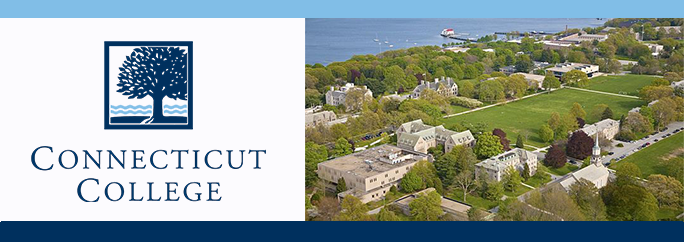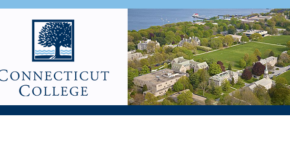
The Academic Minute from 12.02 – 12.06
Monday, December 2nd
Andrea Lanoux – Connecticut College
A New Vision of Russian Childhood Through Literature
Andrea Lanoux teaches Russian language at all levels and courses on Russian literature and culture. She has team-taught courses on gender in communist and post-communist societies (with Amy Dooling), on European Modernism (with Geoffrey Atherton and Abigail Van Slyck), and on comparative Slavic cultures (with Marijan Despalatovic).
Lanoux has published books on Russian and Polish Romanticism (Od narodu do kanonu [From Nation to Canon, 2003]), gender and national identity (Gender and National Identity in Twentieth-Century Russian Culture, co-edited with Helena Goscilo, 2006), as well as articles on Tolstoy´s Anna Karenina, the poet Adam Mickiewicz, Russian women writers, the Polish women´s press, and numerous book reviews and translations. She is currently working on a co-authored book manuscript (with Kelly Herold and Raquel Greene) on post-Soviet children’s literature.
Tuesday, December 3rd
David Canton – Connecticut College
The Second Generation of Black Historians
David Canton believes that African-American urban history illustrates the impact of racism, classism, and sexism in the black community. It also provides insight to the origins of 20th century black urban poverty, civil rights struggle, black class formation, and black community development.
He was appointed Director of the Africana Studies Program in July 2016.
Canton was appointed Interim Dean of Institutional Equity and Inclusion in June 2015, after serving as a Co-Interim Dean of Institutional Equity and Inclusion in April and May 2015, and served until June 30, 2016.
C-SPAN’s American History TV took viewers inside a Connecticut College classroom on a recent episode of “Lectures in History,” featuring David Canton’s class-session lecture, “African Americans in the 1920s,” on Nov. 9 and 10, 2013. The lecture can be viewed on the C-SPAN website.
Wednesday, December 4th
Michelle Dunlap – Connecticut College
Minority Experiences in Consumer Marketplaces
Professor Dunlap graduated from Wayne State University with high distinction and with honors in psychology. She was awarded a McKnight Doctoral Fellowship from the Florida Education Fund.
She earned her master of science and her doctor of philosophy degrees in social psychology from the University of Florida in 1993. While attending graduate school, she taught college and worked as a counselor for Head Start children and their families at a community mental health facility.
She teaches Introduction to Human (Lifespan) Development; Adolescent Development; Children and Families in a Multicultural Society; Social and Personality Development; and Basic Applied Statistical Analyses.
Thursday, December 5th
Derek Turner – Connecticut College
How Science Connects Us to Places
Derek Turner regularly teaches Introduction to Philosophy, Logic, Bioethics, Environmental Philosophy, Philosophy of Science, Philosophy of Biology, The Science and Ethics of Extinction, and Darwin. He also enjoys teaching courses on the history of philosophy. In the fall of 2016, he taught a new ConnCourse on The Meaning of Dinosaurs.
A past winner of the John S. King Award for Excellence in Teaching, Turner is Associate Director of the College’s Goodwin-Niering Center for the Environment. He was awarded the 2017 Nancy Batson Nisbet Rash Faculty Award for Excellence in Research.
Friday, December 6th
Marie Ostby – Connecticut College
The Global Genres of Modern Iran
Marie Ostby’s research focuses on the global circulation of modern and contemporary Middle Eastern literatures, with a specialization in Iran and its diaspora. Other research interests include postcolonial and global studies, genre studies, migration and diaspora, gender studies, life narrative, poetry and poetics, cinema studies, graphic narrative, and digital and social media.
She joined Connecticut College in 2015 and has taught the following courses:
Her current book project, “Genres Without Borders: Reading Globally between Modern Iran and the West,” uses the interwoven modern histories of Persian and Euro-American literature, art, and film to explore how transnational literary exchange under politically fraught circumstances is often mirrored and embodied in the crossing of genre boundaries.

